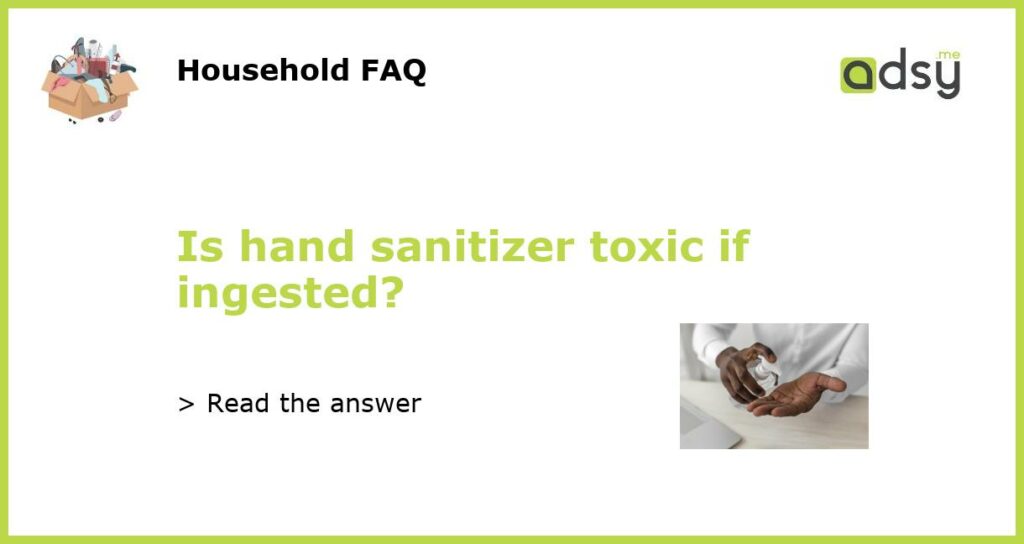What is hand sanitizer?
Hand sanitizer is a liquid or gel formula that is used to kill germs and bacteria on hands when soap and water are not readily available. It contains alcohol that can effectively kill the germs and keep the hands clean. Hand sanitizers are available in different forms starting from small pocket-size bottles to larger bottles that can be used for refilling.
What happens when hand sanitizer is ingested?
Ingesting hand sanitizer can be harmful to health. Hand sanitizers contain between 60-70% alcohol, which can cause alcohol poisoning if ingested. Symptoms of alcohol poisoning include dizziness, vomiting, stomach pain, headache, rapid heartbeat, and difficulty breathing. Although alcohol poisoning can be fatal, hand sanitizer poisoning is rare but can be dangerous if not treated immediately.
What to do when someone ingests hand sanitizer?
If someone accidentally ingests hand sanitizer, it is important to call the Poison Control Center right away. They will provide immediate information and guidance on what to do. It is important to keep the bottle of hand sanitizer and the label available as it contains important product information that can be helpful in the treatment process.
Can hand sanitizer poisoning be prevented?
Hand sanitizer poisoning can be prevented by keeping it out of reach of children. Placing it in a secure location and avoiding attractive packaging can help prevent accidental ingestion. It is also important to supervise children closely and teach them that hand sanitizers are not meant for ingestion. If ingested, prompt action is necessary to prevent further harm.
Hand sanitizer is an effective way to keep hands clean and free of germs. However, ingestion of hand sanitizer can be harmful, especially for children. It is important to educate ourselves and our children on the proper use of hand sanitizer and keep it out of reach of children to prevent accidental ingestion. If ingested, immediately call the Poison Control Center and follow their guidance.






